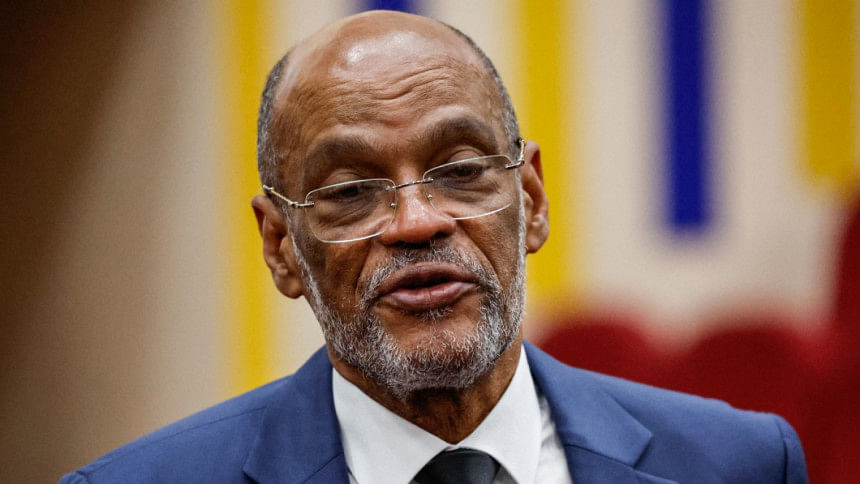Haiti PM has agreed to resign: Guyana president, US official
Haitian Prime Minister Ariel Henry has agreed to resign and make way for a transitional authority, the president of Guyana and a US official said Monday after a regional meeting on a gang uprising that has plunged Haiti into violent chaos.
Henry, an unelected leader who took power right before Haiti’s president was assassinated in 2021, was under acute pressure from parties including the United States to yield to some kind of new power arrangement as the already poor and unstable country fell further into bedlam.
It has no president or parliament now and has not held an election since 2016. Gangs who control much of the country went on a rampage last week, demanding Henry’s resignation as they attacked the capital Port au Prince’s airport, the presidential palace and other key structures.
“We are pleased to announce a commitment to a transitional governance arrangement which paves the way for a peaceful transition of power,” said Irfaan Ali, president of Guyana, which now chairs the regional body called CARICOM.
“To that end, we acknowledge the resignation of Prime Minister Ariel Henry,” Ali told a news conference.
A US official also said Henry had confirmed his resignation in a telephone conversation with Secretary of State Antony Blinken, who was in Jamaica for the emergency meeting.
CARICOM called the crisis meeting in Jamaica after armed gangs that already control much of Haiti’s capital Port-au-Prince unleashed a campaign of violence, with the Western hemisphere’s poorest nation plunging into an orgy of killing and looting and fears rising of famine.
Port-au-Prince and the surrounding region is under a month-long state of emergency, while a nighttime curfew has been extended through Thursday — although it is unlikely overstretched police can enforce it.
CARICOM leaders consulted virtually with Henry and other Haitians throughout the meeting.
Blinken promised another $100 million to back an international stabilization force, bringing the total promised by the United States to $300 million since the crisis intensified several years ago.
Blinken also offered another $33 million in immediate humanitarian assistance.
President Joe Biden — who ended the US war in Afghanistan — has ruled out sending troops to Haiti, which the United States occupied for nearly two decades a century ago and where it has intervened since.
Eyes initially turned to Canada, but it also decided a Haiti mission was too dangerous with success uncertain.
Canada, however, has offered $91 million for Haiti, and Prime Minister Justin Trudeau promised continued support as he addressed the Kingston summit remotely.
– Mission gathers steam –
Kenya stepped forward but was set back by a domestic court ruling against the deployment to Haiti.
The Kenyan deployment plan has again picked up steam after Henry visited Nairobi and agreed on a “reciprocal” exchange of forces between the two countries.
Henry was blocked from returning to Haiti by the intensifying violence. He is stranded in the US territory of Puerto Rico, with no outside power interested in helping him return.
The US official said Henry was welcome to remain in Puerto Rico.
LondonGBDESK//



Comments are closed.